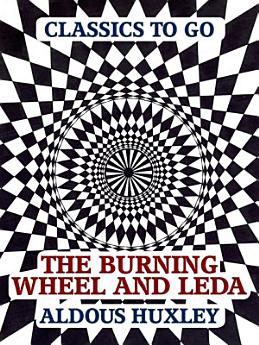The Burning Wheel and Leda
Apr 2020 · Otbebookpublishing
E-Book
77
Seiten
family_home
Zulässig
info
reportBewertungen und Rezensionen werden nicht geprüft Weitere Informationen
Über dieses E-Book
Autoren-Profil
Aldous Huxley (1894-1963) was an English writer and philosopher, renowned for his profound and often controversial explorations of society, technology, and human consciousness. Born into an illustrious family—his grandfather was the famous biologist T.H. Huxley, and his brother Julian Huxley was a noted biologist—Aldous was steeped in intellectual rigor from an early age. Despite a severe eye disease that left him nearly blind in his youth, Huxley pursued a literary career with remarkable tenacity.Huxley's early works were characterized by their satirical edge and keen social commentary, but it was his later works that cemented his legacy as a visionary thinker. His dystopian novel "Brave New World" (1932) remains a cornerstone of speculative fiction, offering a chilling vision of a future dominated by technology and authoritarian control. This work, along with his essays and lectures, positioned Huxley as a critical observer of modernity, questioning the ethical implications of scientific progress and the loss of individuality.Huxley's interest in mysticism and psychedelic substances, particularly his experiments with mescaline documented in "The Doors of Perception" (1954), prefigured the countercultural movements of the 1960s. His advocacy for expanded consciousness and his critiques of materialism influenced a generation of thinkers, including Timothy Leary and the broader psychedelic movement.Controversial yet undeniably influential, Huxley's work continues to resonate, prompting readers to reflect on the complexities of human experience in an increasingly mechanized world. His legacy endures as a testament to the power of literature to challenge and transform societal norms.
Dieses E-Book bewerten
Deine Meinung ist gefragt!
Informationen zum Lesen
Smartphones und Tablets
Nachdem du die Google Play Bücher App für Android und iPad/iPhone installiert hast, wird diese automatisch mit deinem Konto synchronisiert, sodass du auch unterwegs online und offline lesen kannst.
Laptops und Computer
Im Webbrowser auf deinem Computer kannst du dir Hörbucher anhören, die du bei Google Play gekauft hast.
E-Reader und andere Geräte
Wenn du Bücher auf E-Ink-Geräten lesen möchtest, beispielsweise auf einem Kobo eReader, lade eine Datei herunter und übertrage sie auf dein Gerät. Eine ausführliche Anleitung zum Übertragen der Dateien auf unterstützte E-Reader findest du in der Hilfe.








